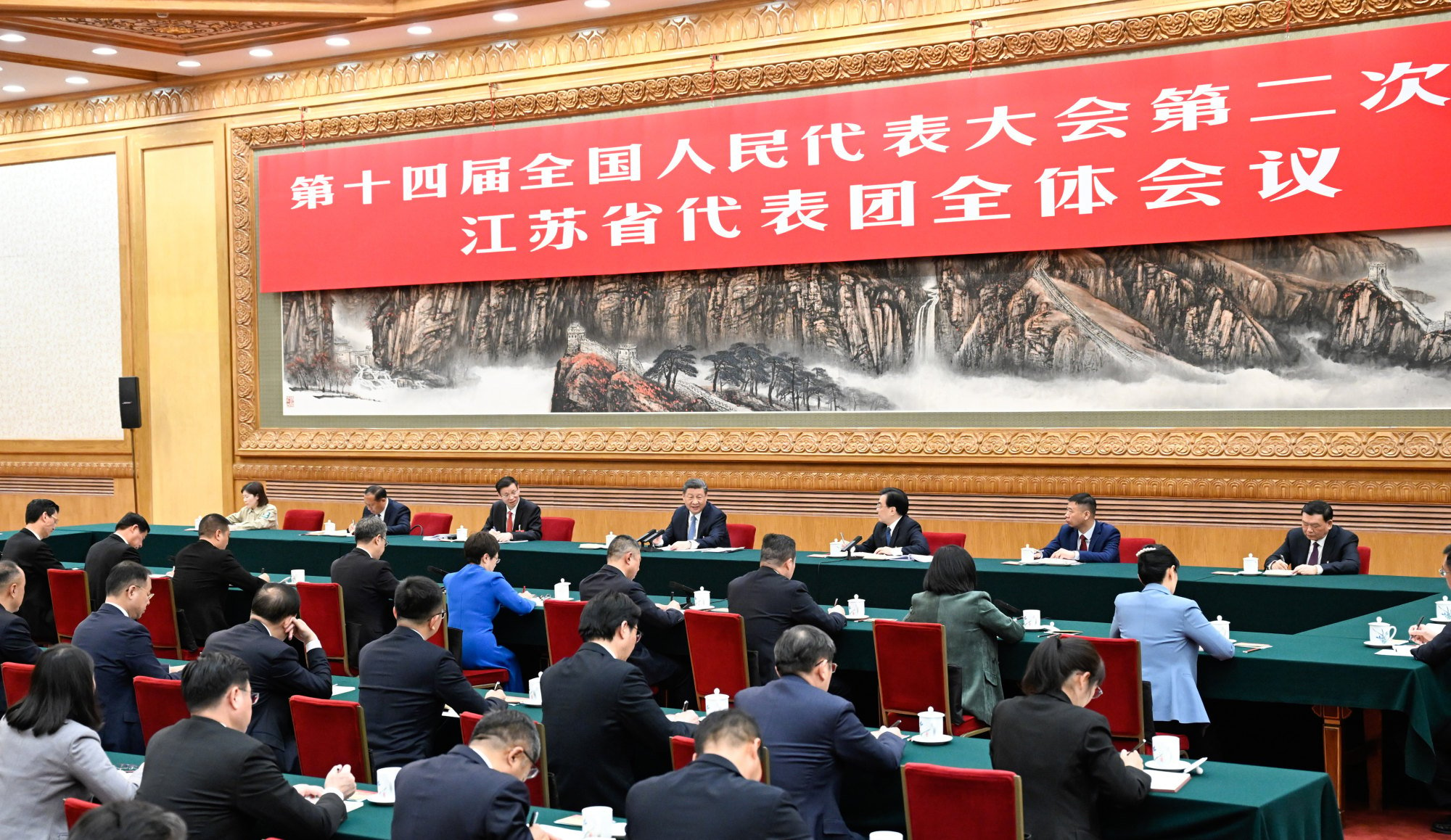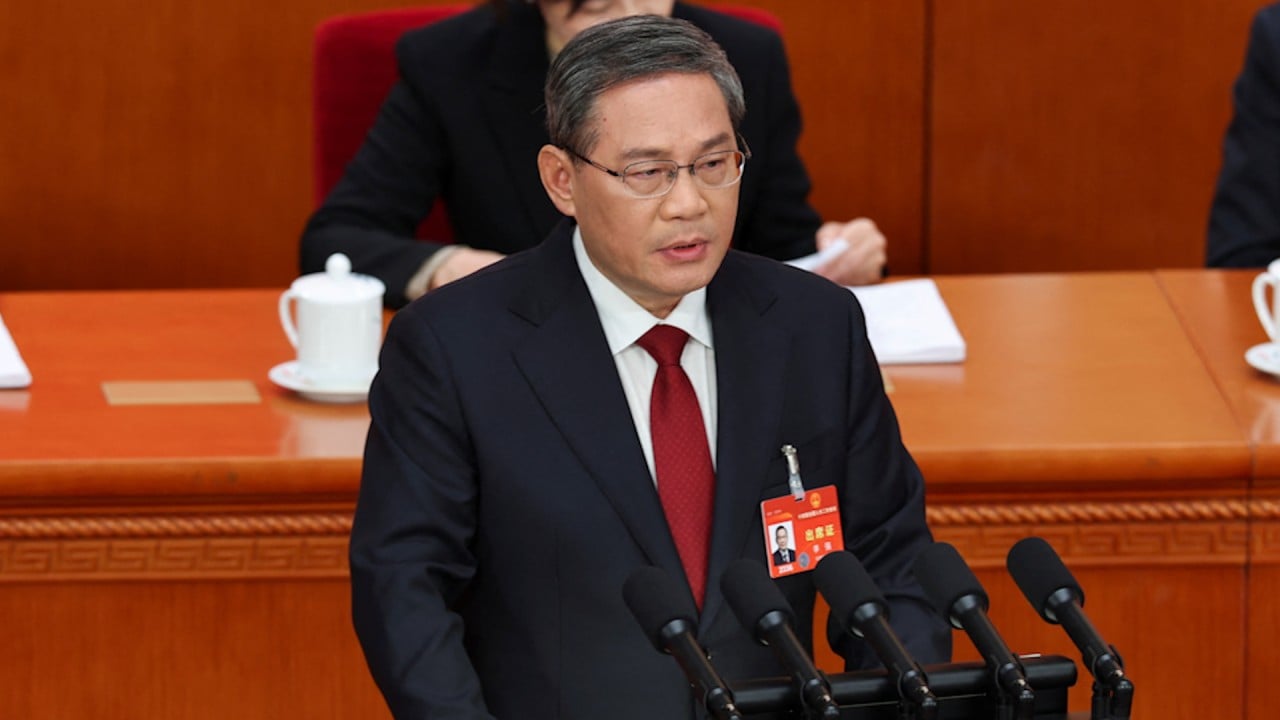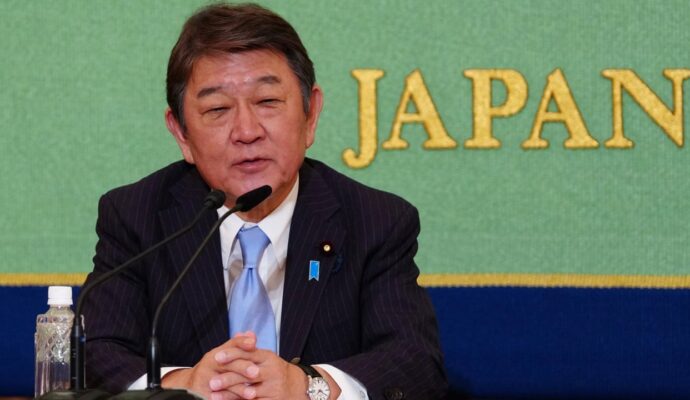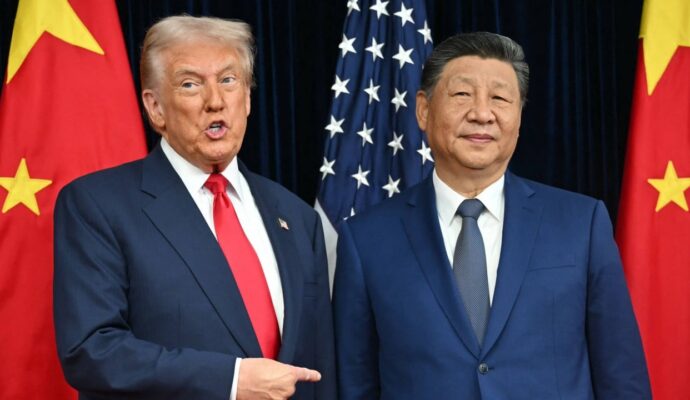Chinese President Xi Jinping warned on Tuesday that the promotion of new productive forces as growth catalysts must not give rise to economic bubbles or unfettered expansion as Beijing seeks to build momentum in solidifying the nation’s recovery.
“In the face of a new round of technological revolution and industrial transformation, we must seize opportunities, increase innovation, cultivate and expand emerging industries, and plan future industries in advance,” Xi told his fellow deputies in the Jiangsu Province delegation during a panel discussion, following the opening of the second session of the 14th National People’s Congress.
However, Xi warned, “we must prevent local rush and oppose irrational, blind investments that create bubbles”.
He also noted that “promoting new productive forces doesn’t mean neglecting or giving up traditional industries”.

Beijing is devoted to upgrading China’s economy and pushing it ahead in the global hi-tech race, but overcapacity issues have already drawn responses from the European Union and the United States.
Directions by Xi, China’s most powerful leader in decades, are often followed by thorough local implementation.
Developing new productive forces – along with modernising industrial systems – has been prioritised as China’s No 1 task this year in the annual government work report, which Premier Li Qiang delivered at the opening of the annual legislative session on Tuesday.
Introduced by Xi in September to highlight the country’s economic and tech upgrade, “new productive forces” has become a catchphrase in local government documents and state media.
Risks ahead but China’s economy to stay on long-term, tech-led course
Risks ahead but China’s economy to stay on long-term, tech-led course
Jiangsu is China’s second-largest provincial economy after Guangdong, with last year’s gross domestic product hitting 12.82 trillion yuan (US$1.78 trillion), known for its exports, advanced manufacturing, clusters of new industries including solar and new energy vehicles as well as a thriving private economy.
The eastern province’s export of the “new three products” – electric vehicles, lithium batteries and solar panels – grew 12.3 per cent year on year to 194.9 billion yuan (US$27.09 billion) in 2023, ranking first among all provinces and regions. Its EV exports alone surged 360 per cent last year.
But the province is also grappling with overcapacity issues in its solar and other new energy sectors.
At the panel discussion, Xi heard the speeches of six delegates, including Gao Jifan, founder and chairman of Trina Solar, and Cui Tiejun, a member of the Chinese Academy of Sciences and professor with Southeast University’s School of Information Science and Engineering. Their proposals covered China’s solar sector and tech self-reliance respectively, according to state broadcaster CCTV.
Xi said that no single business model should be imposed on new productive forces, citing the need to take local conditions – resources, industrial foundations and scientific research capability – into consideration. He also said that traditional industries, which still account for a majority of industrial output, should not be given up.
His stance is in line with the tone-setting central economic work conference, where leaders vowed to “establish the new before abolishing the old”.
Xi’s warning also marked the highest-level response to growing concerns about overcapacity, which is becoming increasingly pronounced in some industries in China.
The European Union has already started an anti-subsidy investigation into Chinese electric vehicles, and the US has launched one citing national security concerns.
Avoid harmful ‘blind investments’ in China’s digital economy, delegate says
Avoid harmful ‘blind investments’ in China’s digital economy, delegate says
Xi also cautioned against the numerous obstacles impeding China’s industrial upgrades.
“We must also reform science and technology systems, education systems and talent systems to break through the points choking the development of new productive forces,” he said.
The Chinese president reiterated support for the private sector, a key contributor to the national economic output through its taxes, tech innovation and urban jobs.



